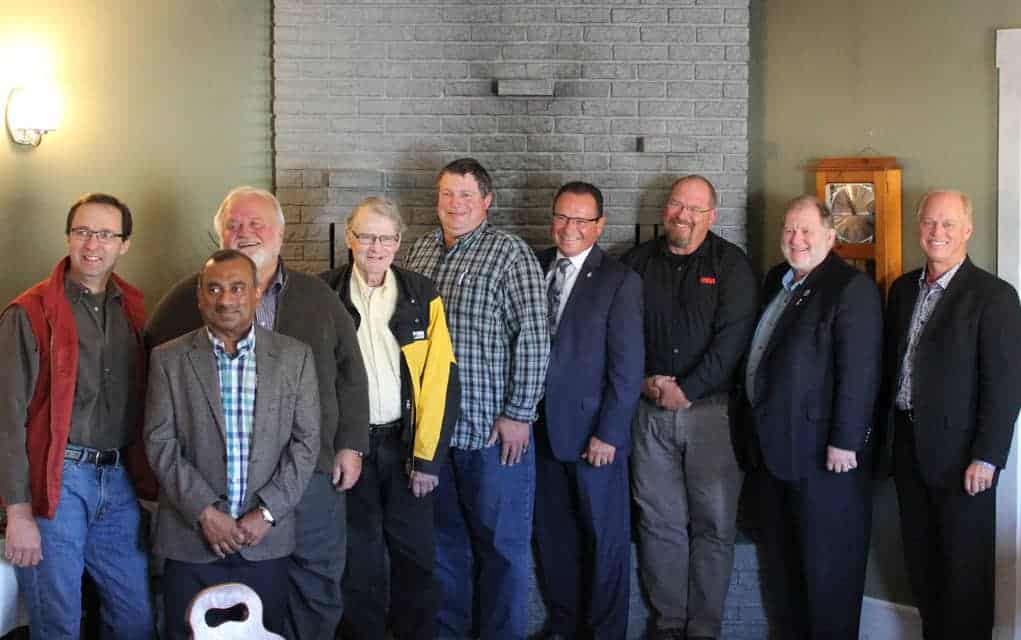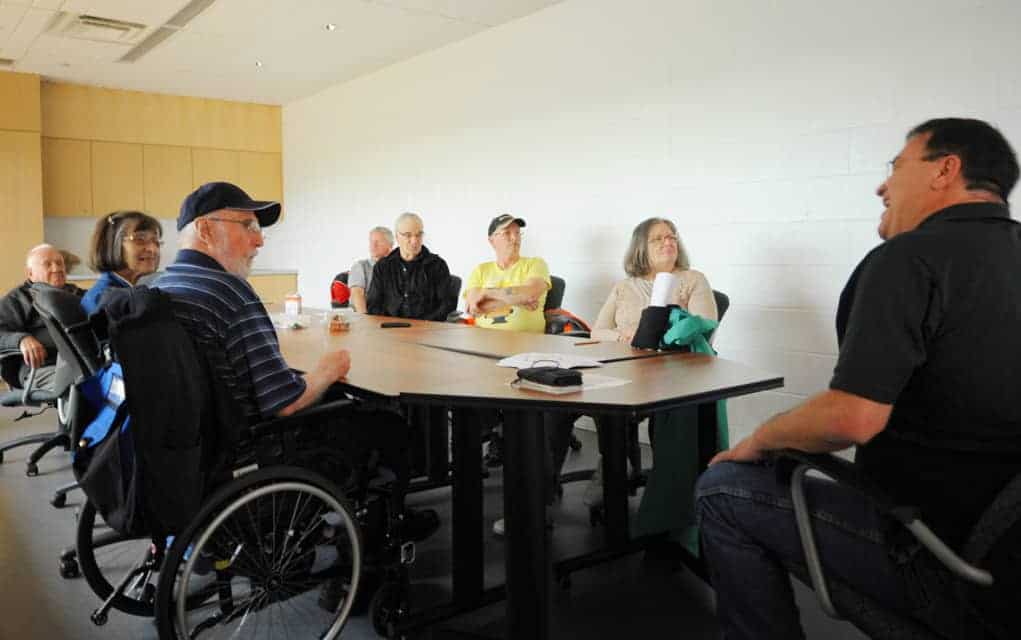Inspired by an environmental consultation held this summer at Kitchener City Hall, Kitchener-Conestoga MP Harold Albrecht earlier this month hosted a roundtable discussion on preserving the environment in conjunction with agricultural and forestry sectors.
“While there was certainly good input [in Kitchener], I felt also that we needed to hear from people who are actually doing the work and not just those who may have an opinion on what should be done,” Albrecht said on the line from Ottawa.
Meeting in St. Agatha on Oct. 13, Albrecht heard from representatives from Ducks Unlimited, the Ontario Federation of Agriculture, the Christian Farmers Association and the University of Guelph.
They discussed what’s being done in the two sectors to mitigate pollution and green house gas emissions, as well as protect the environment for future generations.
“I think too often these sectors are overlooked when we’re talking about the protection of our environment,” Albrecht said.
Environmental issues are nothing new for Albrecht. Prior to the most recent federal election, Albrecht served as the environment chair on the Standing Committee on Environment and Sustainable Development.
He says he was encouraged by the discussion.
“I think that farmers and ranchers and hunters and anglers and our forestry people are automatically some of our best environmentalists. They have a vested interest in protecting their soil and water because if they don’t have it to use next year and the next year and the next year they’re actually reducing their viability,” Albrecht said.
Albrecht uses his own 75-acre farm as an example of best practices. He says a few years ago one section was “marginal at best.” So he planted 1,700 trees. He also has changed from plowing, disking, cultivating and harrowing his soil each year before he plants, to now doing no till.
“Automatically by removing the number of passes on that field with my tractor I am reducing greenhouse gas emissions, I am reducing other pollutants and I am increasing my soil yield, improving the texture of the soil,” Albrecht explained.
Many farmers also protect the soil by planting cover crops, resulting in the bright green fields we see when driving through the townships this time of year. Albrecht says farmers have recently started planting cover crops like oats, peas and radishes. They grow quickly, keeping the soil intact and producing a green cover which absorbs carbon and emits oxygen, while creating organic material for next year’s soil.
“We also talked from the University of Guelph’s perspective. They have done a lot of research on other more cutting edge material where they’re actually considering or recommending planting rows of trees down the rows in the field,” Albrecht said.
The trees act as a wind break and reduce evaporation in the fields. The leaves falling off the trees also produce more organic material and the university’s researchers have found increased yields and better carbon dioxide absorption as a result.
Albrecht notes the discussion made its way to the increased taxation of farmland.
“We’ve had a number of issues raised recently in Ontario where people who own small wood lots, say four to six acre wood lots on their property used to be taxed as farm land. Now they’re taxing it as residential because they’re saying you’re not farming it,” Albrecht said.
He noted one farmer he spoke with had the assessment of a wetland on his property rise from approximately $10,000 to $300,000 over the past few years.
Albrecht would like to see some sort of environmental goods and services incentive created across Canada which protects wood lots and wetlands, encouraging farmers to protect them. Right now, a farmer could easily decide to drain a wetland and plant canola, corn or soybeans to make a profit, instead of leaving an important wetland which acts as a sponge and prevents flooding.
“Not only are they not including an incentive to leave it as woodland or wetland, they’re actually providing a disincentive by increasing the taxation,” Albrecht said.
Right now Albrecht’s staff are working to put together a comprehensive report on the input from the roundtable to distribute to the people who attended and anyone else who’s interested.









